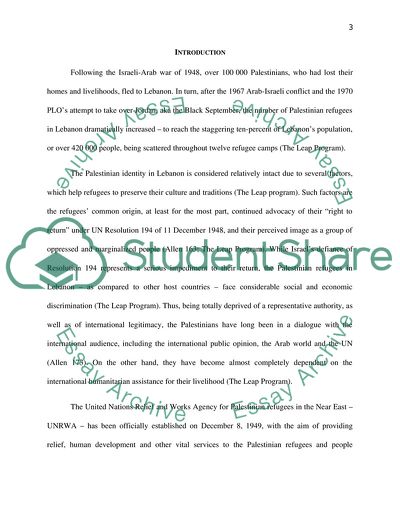Cite this document
(A Success Story in Times of Despair Research Proposal Example | Topics and Well Written Essays - 3000 words, n.d.)
A Success Story in Times of Despair Research Proposal Example | Topics and Well Written Essays - 3000 words. https://studentshare.org/history/1798173-from-success-to-defeat-or-from-defeat-to-success-humanitarian-and-social-projects-of-unrwa-in-lebanon
A Success Story in Times of Despair Research Proposal Example | Topics and Well Written Essays - 3000 words. https://studentshare.org/history/1798173-from-success-to-defeat-or-from-defeat-to-success-humanitarian-and-social-projects-of-unrwa-in-lebanon
(A Success Story in Times of Despair Research Proposal Example | Topics and Well Written Essays - 3000 Words)
A Success Story in Times of Despair Research Proposal Example | Topics and Well Written Essays - 3000 Words. https://studentshare.org/history/1798173-from-success-to-defeat-or-from-defeat-to-success-humanitarian-and-social-projects-of-unrwa-in-lebanon.
A Success Story in Times of Despair Research Proposal Example | Topics and Well Written Essays - 3000 Words. https://studentshare.org/history/1798173-from-success-to-defeat-or-from-defeat-to-success-humanitarian-and-social-projects-of-unrwa-in-lebanon.
“A Success Story in Times of Despair Research Proposal Example | Topics and Well Written Essays - 3000 Words”. https://studentshare.org/history/1798173-from-success-to-defeat-or-from-defeat-to-success-humanitarian-and-social-projects-of-unrwa-in-lebanon.


